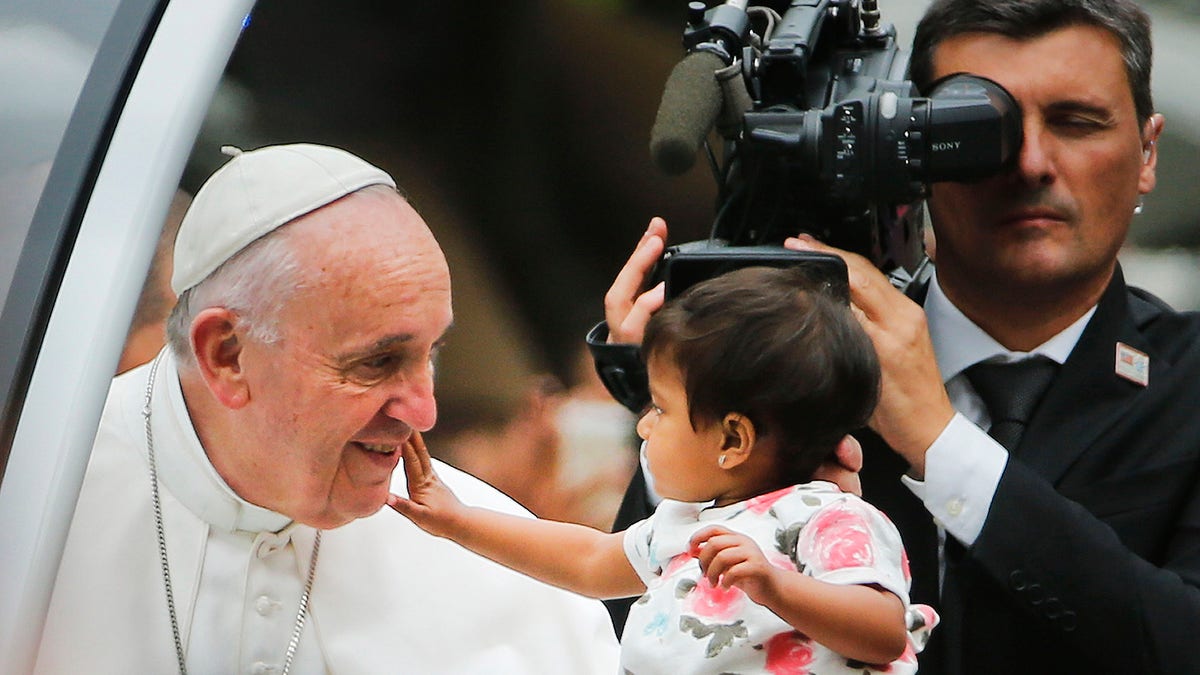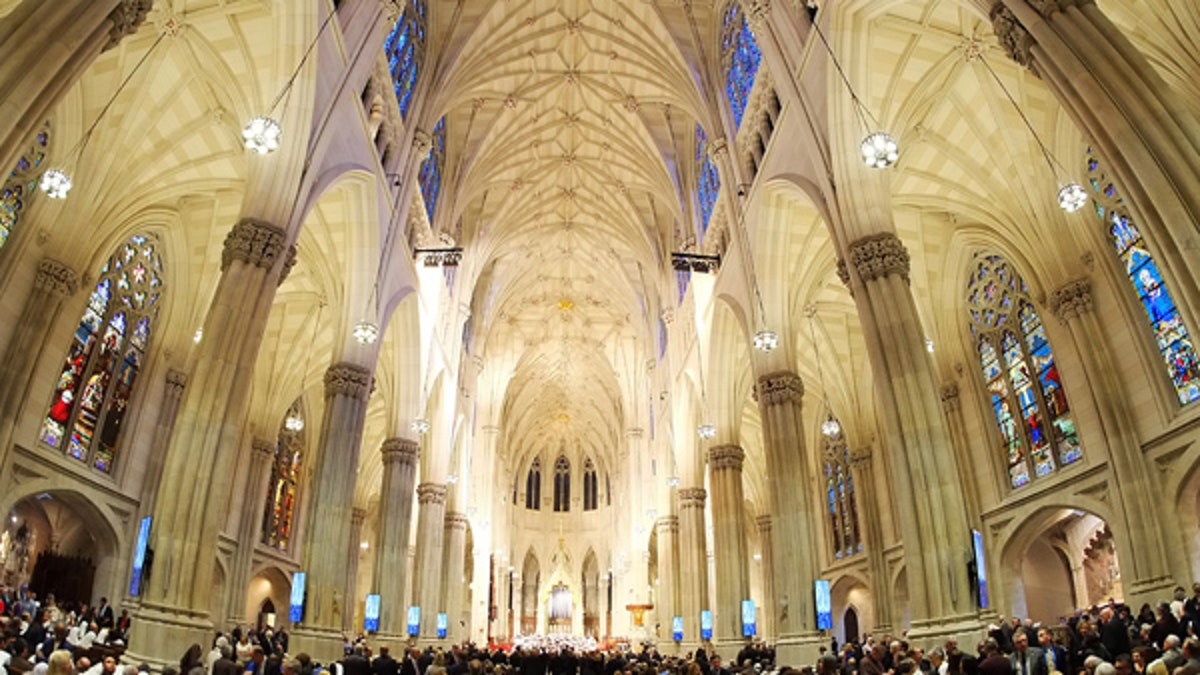
A child reaches out to touch the face of Pope Francis during his visit to Philadelphia in 2015. (AP Photo/Pablo Martinez Monsivais)
Two thousand years after the resurrection of Jesus Christ, faithful Christians are still standing strong.
In the U.S. in particular, Christianity remains the dominant religion.
"Overall, U.S. adults with college degrees are less religious than others, but this pattern does not hold among Christians," a recent study by Pew Research Center found. "Americans with college degrees are no less likely than others to report attending religious services on a weekly basis."
So regardless of education level, Christian commitment to the faith appears consistent across the spectrum.
More From LifeZette.com
"Overall, 70 percent of Christians with college degrees have a high level of religious commitment on a scale incorporating four common measures of religious observance (worship attendance, frequency of prayer, belief in God and the self-described importance of religion in one's life), as do 73 percent of those with some college and 71 percent of those with no college experience," according to Pew, which released its study at the end of April.

St. Patrick's Cathedral in New York City, in 2015. (REUTERS/Robert Sabo/Daily News/POOL)
The group found that individuals with a college degree are more likely than others to identify as atheist or agnostic.
While roughly 71 percent of Americans consider themselves Christians, some 20 percent of the population , Pew noted.
HOW A CHRISTIAN MISSIONARY, NEARLY 100 YEARS OLD, BROUGHT HOPE TO ALASKANS
Back in 2015, the group reported, "An extensive new survey of more than 35,000 U.S. adults finds that the percentages who say they believe in God, pray daily and regularly go to church or other religious services all have declined modestly in recent years ... But the Pew Research Center study also finds a great deal of stability in the U.S. religious landscape. The recent decrease in religious beliefs and behaviors is largely attributable to the 'nones' -- the growing minority of Americans, particularly in the millennial generation, who say they do not belong to any organized faith."
NPR weighed in on this as well: "While church attendance has declined sharply in western Europe, secularization has been less evident in the United States. The number of Americans who list their church affiliation as 'none' has certainly increased, but more than 70 percent still identify generally as Christian."
WHY RELIGIOUS 'NONES' MAY HAVE SO MUCH POWER
"Among mainline Protestants, for example, college graduates were actually found to be more likely than non-college graduates to report weekly church attendance," NPR.com noted.
Across the globe, Christianity is still the most popular religion. An estimated 2.2 billion Christians live around the world. Islam, the second largest religion in the world, has an estimated 1.5 billion followers.

